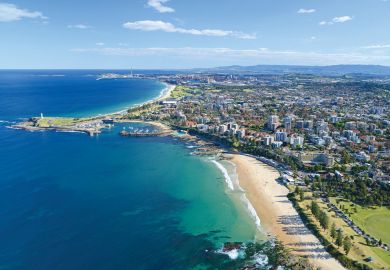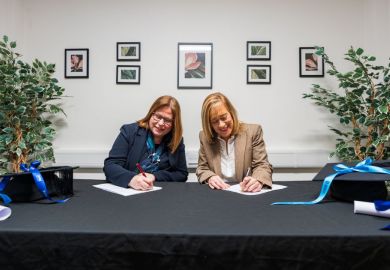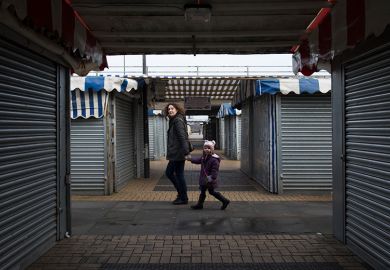More Australian universities are tightening their belts as coronavirus travel bans threaten their financial reserves, but jobs will largely be spared.
The University of Queensland said it had “moved quickly” by asking staff to “exercise prudence with non-essential spending. By taking these steps early, the university is looking to minimise any potential impact on staffing,” a spokeswoman said.
The Australian National University said it was in “a relatively strong financial position” with good reserves. “There are no current plans to freeze spending based on what we know at the moment about likely impacts,” a spokesman said. “The university regularly models for financial contingencies and has mitigation strategies in place.”
Monash University was also in a “sound financial position”, a spokeswoman said, and was pursuing “reductions in spending” that do not “directly impact current staff”. They include “delaying and reducing capital expenditure and carefully considering recruitment needs”.
But in a 5 March email to staff, La Trobe University vice-chancellor John Dewar flagged the need for savings of at least 10 per cent in the face of revenue declines caused by the novel coronavirus, a fall in university applications from Victorian school students – partly attributed to competition from the state’s further education colleges, where some fees were eliminated last year – and a 30 per cent plunge in enrolments from India, which Professor Dewar blamed on the reintroduction of post-study work rights in the UK.
Measures at La Trobe include stopping recruitment for all but “crucial” positions, ceasing non-essential travel, limiting promotions this year to a single round, suspending some bonus payments, preventing accrual of staff leave entitlements, deferring or cancelling discretionary spending and maintaining a “critical evaluation of our course and subject portfolio”, Professor Dewar said.
The University of Sydney had already limited spending on travel, recruitment and capital projects to address the epidemic’s financial impacts, alongside the University of Wollongong, while Macquarie University has axed international travel for at least a month. The University of Melbourne said it was “reconsidering elements of both operating and capital expenditure” as part of “prudent expenditure management measures” to address the crisis.
Many universities are playing their cards close to their chests, reluctant or unable to divulge how much the crisis is costing them or their efforts to rein in costs.
RMIT University, the University of Technology Sydney, UNSW Sydney and the universities of Adelaide and Western Australia either declined to answer questions on these matters, or had not done so by Times Higher Education’s deadline.
Sydney has been one of the few institutions prepared to put a figure on the financial damage, saying the crisis will cost it more than A$200 million (£102 million). Professor Dewar said La Trobe faced a downturn of between A$15 million and A$60 million from the coronavirus and other factors curbing enrolments.
Australia has extended the prohibition on direct entries from China for a sixth week and added South Korea to the ban.
In New Zealand, the University of Auckland predicted that Covid-19 would cost it about NZ$35 million (£17 million). A spokeswoman said Auckland had implemented a hiring freeze on “all roles except those crucial to maintaining services to our student body”.
Victoria University of Wellington, which expects losses of up to NZ$12 million this year, introduced a hiring freeze on 28 February. “The university is being forced to contemplate the possibility of staff reduction measures amongst other cost-saving being considered,” a spokeswoman said.
Register to continue
Why register?
- Registration is free and only takes a moment
- Once registered, you can read 3 articles a month
- Sign up for our newsletter
Subscribe
Or subscribe for unlimited access to:
- Unlimited access to news, views, insights & reviews
- Digital editions
- Digital access to THE’s university and college rankings analysis
Already registered or a current subscriber?












